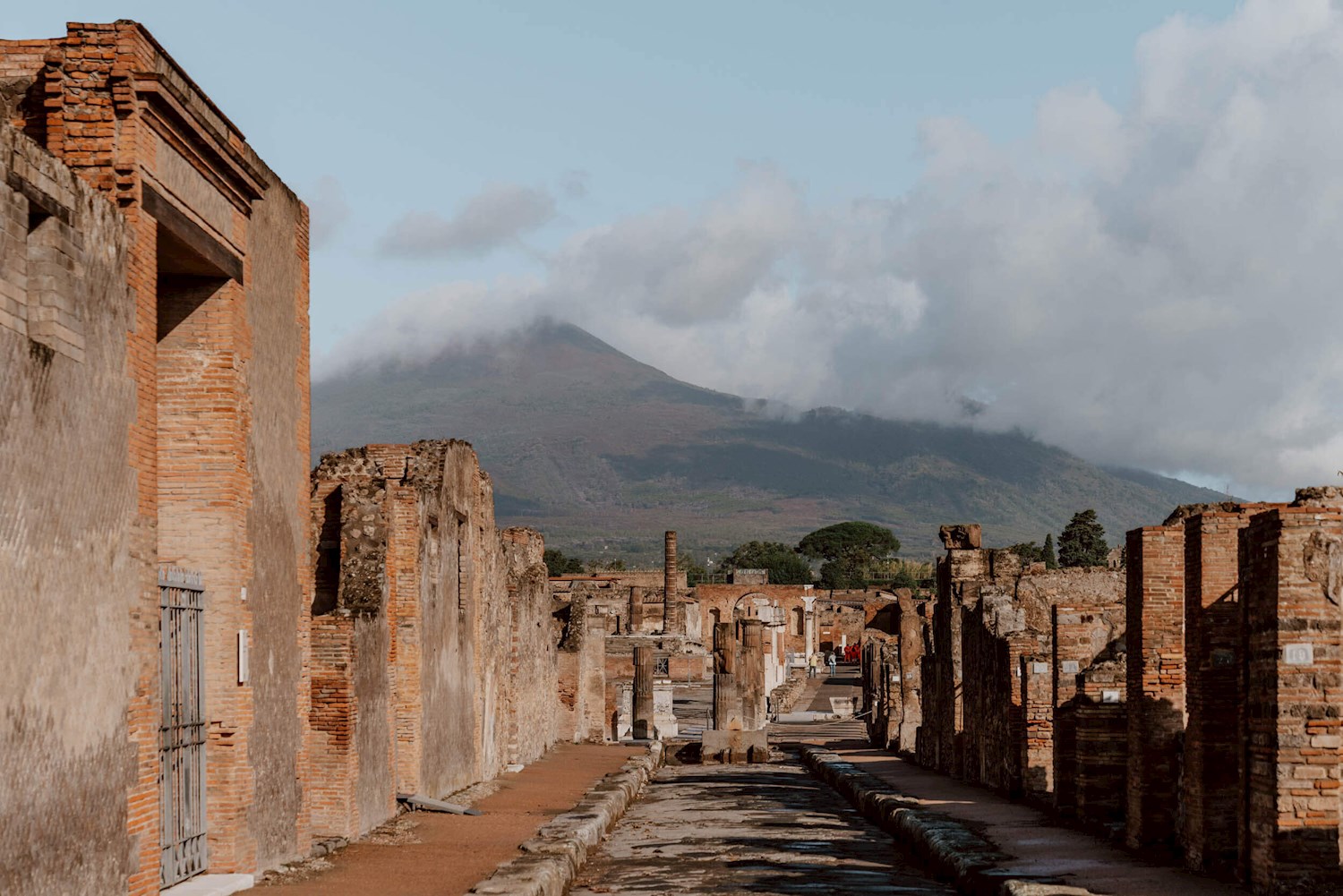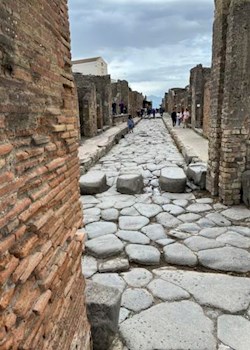Attractions
Experience the vibrant life and hellish death of Pompeii
Pompeii is a vast archaeological site in southern Italy’s Campania region, near the coast of the Bay of Naples. Once a thriving and sophisticated Roman city, Pompeii was buried under meters of ash and pumice after the catastrophic eruption of Mount Vesuvius in 79 A.D. The preserved site features excavated ruins of streets and houses that visitors can freely explore.
more
Experience the vibrant life and hellish death of Pompeii
ITALY // Step through the Porta Marina (Sea Gate) and BAM youre back in ancient Roman times in a throng of people descending on the Forum, as they must have done 2000 years ago when Vesuvius blewits stack. Deep ruts still mark the roads where once chariots careened. walls sport electioneering slogans, and row after row of houses, shops, spas, temples and theatres (sometimes housing contorted body casts of their fleeing former inhabitants) line the vast, 66-hectare (160- acre) city. There's plenty to explore: the Temple of Isis, which inspired Mozart's Magic Flute, the House of the Tragic Poet, the ever-popus brothel with its lewd graffiti, the grassy amphitheatre and the steam Stablan Baths. To finish, make for the Villa of Mysteries, daubed with blood-red frescoes, from where you can still spy Vesuius gloreit
Why is Pompeii famous?
The city of Pompeii is famous for being destroyed in AD 79 by the eruption of a nearby volcano called Mount Vesuvius, which covered it in at least 19 feet (6 m) of ash and other volcanic debris. A rapid burial of the city preserved it for centuries before its ruins were discovered in the late 16th century.
What is the true story of Pompeii?
But in the summer of 79 AD, the volcano Mount Vesuvius erupted nearby. It spewed smoke and toxic gas up to 20 miles into the air, which soon spread to the city. Almost overnight, Pompeii—and many of its 10,000 inhabitants—disappeared under a blanket of ash.
Why was Pompeii destroyed in Islam?
It means that Pompeii was like Sodom - the nation of Prophet Lot for short "peace be upon him" - which received divine punishment due to impiety and as a result was destroyed by rain of fire. February 17, 2022
Why is Pompeii called Sin city?
It was a city alive with violent enthusiasm and a talent in a class of its own. Power games, sexual appetite, unbridled ambition and creative genius can be felt in the streets, breathed in the temples and in the murals that survived the tragic eruption of 79 AD. admired
What language did Pompeii speak?
The main language of the city became Latin, and many of Pompeii's old aristocratic families took their names as a sign of Latin assimilation.









